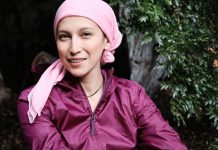
A new study from the Yale Cancer Center presents promising data suggesting that a targeted diet and exercise intervention can potentially enhance the outcomes for women undergoing chemotherapy for breast cancer.
The study addresses the common challenge of treatment adherence due to the adverse side effects commonly associated with chemotherapy.
The Intervention
Under the lead of Tara Sanft, MD, and senior author Melinda Irwin, Ph.D., researchers provided newly diagnosed breast cancer patients with specific interventions aimed at diet and exercise.
These interventions aimed to mitigate the negative side effects of chemotherapy and encourage patients to stick with their treatment regimens.
The intervention included regular counseling sessions focused on healthy dietary practices and physical activities.
The team observed that women who participated in the intervention reported an increase in exercise and fruit and vegetable intake.
Surprising Findings
Although the primary goal was to improve the rate of chemotherapy completion, measured as Relative Dose Intensity (RDI), the study unearthed an unexpected but exciting outcome.
A surprising 53% of the women in the intervention group experienced a pathologic complete response (PCR), indicating the complete disappearance of all invasive cancer cells in the breast.
In contrast, only 28% of women in the control group achieved the same result.
Melinda Irwin remarked, “Further explanation is needed since it wasn’t the primary outcome of our study, but there’s an exciting possibility that diet and exercise can influence chemotherapy outcomes through factors other than just how much of chemotherapy was completed.”
It’s Never Too Late to Start
Sanft, also the medical director of the Smilow Cancer Hospital Survivorship Clinic, emphasized that the results prove patients can adopt healthier habits even during cancer treatment.
“Even at diagnosis, it is not ‘too late’ for oncologists to recommend these healthy behaviors to patients,” she said.
Implications
While further research is needed to fully understand how diet and exercise can directly affect chemotherapy outcomes, this study paves the way for a holistic approach to cancer treatment.
It also opens up new research avenues for understanding how lifestyle factors can synergize with medical treatments for improved outcomes.
The study’s findings have the potential to profoundly affect recommendations for managing chemotherapy side effects and could result in broader implementation of lifestyle intervention programs in cancer treatment protocols.
If diet and exercise can not only make chemotherapy more bearable but also more effective, then this offers a new tool in the fight against breast cancer.
If you care about cancer, please read studies that mammograms over-diagnose 1 in 7 breast cancers in the U.S, and new way to increase the longevity of cancer survivors.
For more information about cancer, please see recent studies about sweeteners linked to increased cancer risk, and results showing new way to supercharge cancer-fighting T cells.
The research findings can be found in the Journal of Clinical Oncology.
Follow us on Twitter for more articles about this topic.
Copyright © 2023 Knowridge Science Report. All rights reserved.



